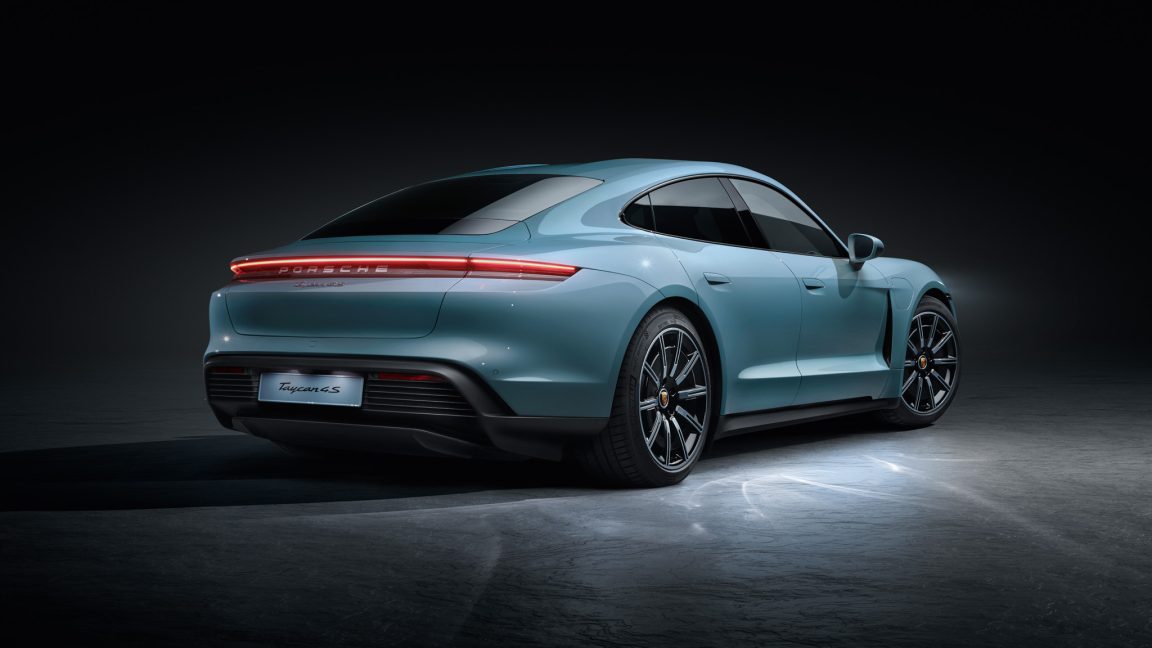
Credit: Porsche
Porsche’s new boss was a sceptic of battery motors for luxury vehicles long before he was picked to lead the revival of the petrol engine at the German sports car group.
“The technology isn’t ready,” Michael Leiters told the Financial Times late last year while still in his old job as chief executive of British supercar manufacturer McLaren. Electric vehicles lacked the emotional thrill of noisy engines and were quicker to lose their value, he said.
Leiters will take over at Porsche in January at a critical juncture for the Stuttgart-based company, as it tempers its electric ambitions and ploughs new investment into petrol engine models in an attempt to turn its fortunes around.
Leiters cut his teeth as the personal assistant to one of Porsche’s CEOs in the early 2000s and also spent time as Ferrari’s chief technology officer. He was “one of a very small handful of people who ticks all the boxes,” according to Scott Sherwood, an independent analyst of luxury car brands.
“Given the challenges Porsche is facing, they need a CEO who brings an outside perspective yet understands Porsche, the Porsche family, the German culture and Porsche’s operating environment,” he added.
The luxury car brand has long been one of the most reliable sources of profits in the Volkswagen stable. While Porsche’s vehicle sales only accounted for 3.6 percent of Volkswagen’s deliveries on average worldwide in the past three years, the brand produced almost 30 percent of the group’s operating profit.
However, its shares have plunged almost two-thirds from their peak in May 2023 after a series of profit warnings this year brought on by a slump in China as well as writedowns.
The group in September slashed its operating margin forecast for 2025 to 0-2 percent, down from 14 percent the previous year. And while it set its midterm profitability target to 10-15 percent, it would “be some time before we even get to that,” said Bernstein automotive analyst Stephen Reitman.
Leiters will replace Oliver Blume, who led Porsche for the past decade, holding the post alongside his CEO role at the Volkswagen group since 2022. VW holds 75.4 percent of Porsche and, together with the Porsche-Piëch family, owns all of the voting stock.
Blume’s dual role did not seem “outrageous,” when Porsche’s strategy seemed to be moving “on rails,” said Reitman. But as the problems have mounted at Porsche, the company needed a CEO who could dedicate “25 hours a day” to resolving them, he said.
Porsche has invested billions into new all-electric models under Blume, but demand has fallen short of expectations with EVs making up only 12.7 percent of units sold last year.
The weaker than expected outlook has forced the manufacturer into costly changes. The company last month shelved plans for a new electric SUV, booking an impairment of €1.8 billion related to development costs. Meanwhile, the company is seeking to undo its earlier decision to halt the development of petrol or hybrid successors for its best-selling Macan and Cayman models.
Porsche had bet on electrification in the wake of Volkswagen Group’s Dieselgate emissions cheating scandal but had been “too bullish,” said Metzler Research analyst Pal Skirta.
The sports-car maker’s challenges have been compounded by its struggles in China and the US, its two most important markets. In China, previously boasting strong growth and healthy profits, sales slumped by almost 40 percent between 2022 and 2024 as local rivals emerged.
In the US, new tariffs imposed by President Donald Trump will foreseeably apply to every unit sold. Unlike rivals, Porsche does not have a factory locally and imports all its vehicles from Europe.
The effects of the crisis are already being felt at Porsche’s factories. The company said earlier this year it would cut 3,900 jobs by 2029, the equivalent of 9 percent of its workforce, and it is in talks with unions about more cost savings.
Porsche will have to smooth out persistent EV product delays because of software problems, where Chinese newcomers have set the standard in recent times. In a recent interview with the Financial Times, Sajjad Khan, Porsche board member for IT and software, said the quality of its products and technologies would be better in 2026 and 2027. “We have to work hard to execute perfectly,” Khan said.
Leiters may be one of the few well-placed executives to lead Porsche, but one question he faces will be how to preserve the premium status of its vehicles. His former employer Ferrari has thrived on scarcity of its sought-after supercars, but analysts have long wondered how Porsche will square its high prices with a push to sell more cars.
The German group’s U-turn on combustion engines also raises questions over its aim to establish itself as a maker of premium EVs.
“That’s the risk of the strategy that they will focus again too much on combustion engine vehicles, and then we’ll lose the EV race in the long run,” said Skirta.
© 2025 The Financial Times Ltd. All rights reserved Not to be redistributed, copied, or modified in any way.

-
 C114 Communication Network
C114 Communication Network -
 Communication Home
Communication Home


